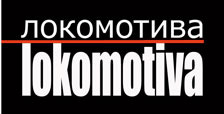Research and development of the first case studies drafts on Kino Kultura – Skopje, Pioneer city – Belgrade and Motel Trogir – Trogir
/1 September – 31 December 2016/
Three partners in the local context researched and collected relevant information related to the development of the case studies of the respected spaces. Researches considered following:
- Desktop analyses (analyses of the documents, policy papers, normative acts and other online resources)
- Interviews with selected artists, architects, cultural workers, economists and other relevant subjects for the specific local cases
- Focus groups involving different target groups.

Collected information was systematized and incorporated in the three case studies (drafts-as planned for this period), which will be further used for the development of the research questions and models development based on the specificities of local contexts (Croatia, Serbia, Macedonia).
Research methodology specificities vary from context to context and are related to the specific needs, problems and situational analyses.
In Croatia, the research consisted from desktop analyses, which embraced historical materials and factual findings in relation to the state of the site nowadays, and its perception in the local context. We conducted several field researches by visiting the site, interviewing citizens/users, potential owners and the local government. We visited the archives, the National archive in Zagreb and the Museum of the city of Trogir archive. We also fed and stimulated the journalists’ research in the case of the recent devastation of the site.
In Macedonia, the research consisted from desktop analyses, interviews and working group meetings. Desktop analyses hold findings about the historical development of the cultural space, mostly related to the post second World War period. Interviews were done with one of the building owners Ms Viktorija Kostova Volckova and Mr Aco Dukovski, ex-director of the public institution City Cinema – Skopje (Gradski Kina Skopje), a network of cities’ cinema theatres among which Kino Kultura, as one of the most important and visited. Third part of the research is related to the present period/state of the Kino Kultura, as reopened and new project – space for contemporary performing arts and contemporary culture. This part of the research was dedicated to formation of working group, consisting of partner organizations and individuals that we have invited to reflect on the further ideas and plans for the Open Space programme part of the Kinio Kultura. Working group costs of: Filip Jovanovski and Ivana Vaseva (Faculty of things you do not learn), Milan Zivkovic (Friedrich Ebert Foundation-office Skopje), Sofia Gosheva (economist and representative of the Association for Persons with Disabilities – Blue Bird), Oliver Musovik (artist), Bojana Nizamovska (Youth Educational Forum), Erina Filipovska, Damian Kokalevski (Creative City Network), Ivo Baru (Debate cinema – Kontra Kadar) Ivan Toromanovski (associate independent consultant) Violeta Kachakova and Biljana Tanurovska Kjulavkovski (Lokomotiva/Kino Kultura) and Pavle Ignovski (Theatre Navigator Cvetko/Kino Kultura).
In Serbia base line research started in September 2016, field and desktop researches were conducted. We collected materials (photos, documents, video materials, guidelines) from various public institutions (Museums, Media houses, libraries and Public Archive). At the same time we conducted four interviews with focus groups and stakeholders of the site. We included three students of MA Heritology studies, the Faculty of Philosophy of University of Belgrade.

The main goal of the project Dissonant (Co)Spaces is to contribute to preservation of places of the common/cultural history and to champion new models of public spaces and cultural institutions defined on the principles of civic participation, inclusion, exchange/dialogue and development of contemporary culture.
In the first (methodology development and research) phase we have addressed the objectives that would be reached after the project implementation.
Our objectives are:
- To re-think theoretically and develop innovative models of the cultural institutions as inclusive public spaces;
- To critically reflect on the values of the dissonant modernist heritage
- To enhance artistic exchange, reflection and production in public space
- To create preconditions for involvement of communities, building partner network, collaboration among professionals and for influence on public policies regarding inclusive public spaces.
Through the Social media and the blog we are investing in the audience development (reaching new audience). Through the research process we have created the network of professional collaborators (institutions, NGOs, individuals) and we have informed stakeholders about the project and its following activities.
In Croatia considering the specific circumstances of the recent spatial devastation in the close vicinity to the researched site, an initiative was launched by the local partner to raise awareness of the local community towards these negative processes. As a result, significant media echo followed and reached public on national level. (An extensive article was published on vizkultura web site, and it was one of the 10 top articles read on this important arts and culture web site. See more here: https://vizkultura.hr/author/dominko-blazevic/).

